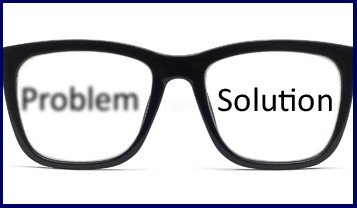How to get over imposter syndrome
We all have times when we feel out of our comfort zones, and like we don’t belong. This is the deeply unhelpful psychological phenomenon known as imposter syndrome.
If you’re a business owner or start-up founder, you are almost certain to have encountered the feeling of imposter syndrome many times already. When I saw my contact Susie Ramroop talking about imposter syndrome on social media, I was eager to ask her all about it.
Susie is a mindset coach and speaker. She takes business leaders from good to great by focusing on what truly makes an impact.
 Susie, do you think women experience imposter syndrome more than men?
Susie, do you think women experience imposter syndrome more than men?
I’m not convinced about this. I am inclined to believe that men feel it just as much as women, in fact in preparation for this interview, I surveyed my network and all of the successful men I spoke to admitted that they felt it. The circumstances they quote to describe it are times when they were given a huge opportunity that represented a step up. They questioned whether they were ready and able to take it on.
The situation that reminded me most of was childbirth – that moment when your waters have (been) broken, you’re ready to go and you think, wait, can I do this? Like any situation that we desire most, it’s too late at that point, so we might as well make it as easy as possible by believing in ourselves as much as possible. Self-doubt only makes the journey harder!
Why do you think this is?
In my experience of choosing to work with more women than men in a personal leadership capacity, I have made the following deduction: women take too much responsibility and men don’t take enough. Radical perhaps, but seriously true if I sort through most, not all, of the potential clients I speak with.
I have often not taken on male clients because they believe the problem they are experiencing is external to themselves. It’s a result of the way the business is working, or someone else’s fault. Whereas women more often than not believe that they are the cause of what happens, normally when that occurrence is negative. They didn’t get what they wanted because they didn’t do something well or right.
I believe that this is why women are more active in seeking explanation. When they see a reason why, it is more attractive than being solely responsible, so they are much more willing to then own the label.

And of course none of this is true. There is nothing wrong with you, and you have done nothing wrong, BUT you have a choice to make – imposter or just you being you.
On nearly every panel I sit on, or hear from, someone picks imposter syndrome as one of their biggest challenges. I would love for someone to be refreshing and say they’d never experienced it. I suspect that because imposter syndrome is so highly reported that women feel almost abnormal not to have experienced it! I’d love for panels to inspire the next generation about it being a choice they can reject.
How does imposter syndrome impact our potential to succeed?
Imposter syndrome creates this soundtrack in our heads that is constantly on repeat. Every time we do something well we tell ourselves it wasn’t that great, or it was a fluke, which instead of fuelling us for next time, makes us more fearful that we will have to work even harder to prove ourselves.

This is energy consuming, and keeps us in our heads. I spend a lot of time working with the mind and body of my clients to get them out of their heads – away from the desire to overthink and control, which only creates distance between our instincts and our passions. When we lose touch in this way it’s a really difficult and pointless place to operate from.
When we get opportunities we get them because of who we are, not what we are doing. If we are trying to be someone we’re not to compensate, we are actually setting ourselves up to fail – the act is not sustainable.
Much better to gain total clarity on who you are and what is important to you, so you can operate from there. You can’t do this if you believe who you are isn’t good enough. And ironically, operating from that place is not going to produce your best work or your greatest relationships.
What are your top tips for overcoming imposter syndrome?
- Stop owning it
- Start accepting praise
- Change how you talk to yourself – if I said out loud what was in your head you would be horrified. You’d think I was the biggest meanie in the school….so why do it to yourself? Whether it is your voice or mine, it will impact your confidence equally.
- Create a list of all the things people come to you for – that is where your superpowers lie. They are the things you take for granted, but the things that allow you to bring the greatest value. Ignoring this is disrespectful
- It’s not all about you – this normally shocks my clients. But most women find it easier to value and praise other people. If their best friends shared the same doubts they would be the first person to pump them with self-belief. When you are derogatory to yourself you are minimising the impact you can have on the world. And the world needs you. So stop wasting your time on owning things that don’t help you progress, and start making a difference with the things you can do in your sleep.
Do you think in the future women won’t experience imposter syndrome?
Unfortunately not. Some people are more bought into inadequacy than they are progress. You’ll note that I didn’t compare inadequacy with greatness. Greatness is too big a concept when you own imposter syndrome. But I do want to highlight that when you do that all you can hope for is standing still, even though that feels like wading through treacle.

I think we need to stop focusing on the problems, and start energising our solutions. This is a bugbear of mine when I go to women’s events and the narrative is all about how unfair it is being a woman in the workplace. This is martyrdom for me, and it is entirely unnecessary. We get back what we put out, so if we are focusing on the problem, we are actively exacerbating it.
I would love to see content being inspirational and showing how focusing on being the truest version of ourselves and being clear about what we want is what gets it for us. Expecting other people and years of habit to change simply will not. In doing so, we don’t have to talk about breaking barriers, and pushing boundaries. It’s aggressive and keeps our gaze on obstacles that often aren’t even there. Our biggest fuel is our clarity and our consistency. Once we demonstrate that, the world becomes much simpler, and owning an illness like imposter syndrome will suddenly seem utterly pointless.

We have to remember that imposter syndrome is not all about career. Success can be experienced anywhere. Personally, I want to show up in all my relationships as the best and truest version of me. That means being honest when I feel nervous or doubt myself, allowing other people to support me when they offer and asking for help when they don’t. Having the best relationships will get you the best opportunities.
Some people feel miles away from being able to do that, and I was too once, but it was a long and ugly road to reach destination “ask for help here”. I got off my maddeningly fast train at that station and have never looked back. If anyone reading this feels that way, I can promise, it’s a lot safer to get off and re-evaluate than it is to stay on! Please don’t hesitate to reach out if you’ve had enough and want to wave goodbye to the train!
Thank you for your surprising answers Susie. You certainly helped me see imposter syndrome from a different perspective.
If you’d like to find out how Susie can help you change your limiting mindset and think big, you can find her here:
Like Susie, I’m a great believer that we get out what we put in. You may find that having my input into your shoe business allows you to reach your big goals sooner.

If you’re ready to receive support in achieving your shoe brand goals, I’d be delighted to hear from you. Send me a message when you want to start making your business dreams a reality. I can’t wait to hear from you!

Leave a Comment: